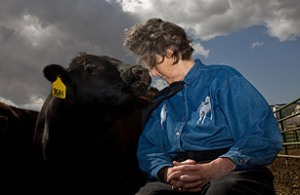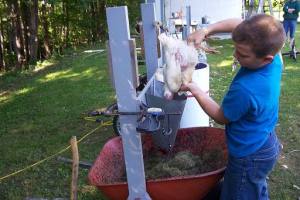Of the 288 citations in chapter 4…
-28 (10%) are from the pop-science, brand-based book The Protein Power Life Plan by Eades & Eades. This book generally talks about low-carb diets like the Atkins. At least they are doctors. But here are some thoughts about this diet and similar diets, from other doctors:
WebMD, a conglomeration of different doctors,views the Protein Power Life Plan, as the authors seem to as well, as one which is largely useful for short-term weight loss. (See Keith’s many discussions in this book about how veganism basically equals anorexia, and feel free to scratch your heads like we did.) They also say that in the long-term, it can be “seriously deficient in important nutrients”. Bonne Brehm, Ph.d and nutrition scientist, writes: “In the short term, the low-carb diets are effective — we see weight loss, improvement in some metabolic functions such as blood pressure, loss of body fat, but their real hazard is that they are nutritionally poor,” she says. “They are low in calcium, low in vitamins C and A, low in fiber. We don’t know if taking a vitamin-mineral supplement is adequate. There are a lot of micronutrients in foods that are not in supplements, including some we don’t even know about yet. We do not have any long-term studies on these alternative diets with the extreme modifications of a nutritionally balanced diet.”
Famed vegan doctor and researcher Michael Gregor is the author of Carbophobia: The Scary Truth About America’s Low-Carb Craze, which you can read for free here. Here, you can also read about how the ADA, AMA, The American Cancer Society, The American Kidney Fund, and The American Heart Association have been warning about the health risks of low-carb, high protein diets for years. Etc.Make of this what you will. Dr. Gregor, in his aforementioned book, also talks about how the Atkins and other high-protein diets have directly profited the meat industries, while dismissing wide-ranging evidence that these types of diets are ultimately unhealthy. Then the Atkins Corporation threatened to sue him because, essentially, he was challenging this low-carb, high-meat industry.
-41 citations are from the book controversial book Good Calories, Bad Calories by Gary Taubs who, although he has studied physics and aerospace engineering, is also not a nutritionist or medical doctor. This book is also largely about obesity, dieting, and its relation to low-carb, high-protein diets. See above for other opinions about this diet craze. 6 more citations are from Taubs’ article “What If It’s All Been A Lie?”, so Taubs makes up 16% of Keith’s citations.
-12 citations (4%) are from Sally Fallon’s Nourishing Traditions cookbook. Sally Fallon, like Keith, is also not a nutritionist, doctor, biologist, or trained in any health traditions. She is a “nutrition researcher” with two college degrees in English, who wrote a cookbook. This book has been criticized in similar ways to Keith’s: “While Nourishing Traditions has over 200 references, many are antiquated, with poor observations. For the most part, the authors reference their own articles and those of other Weston A. Price foundation authors. Only fourteen of the references are from peer-reviewed journals published in the last ten years, and for most of those fourteen, the authors misrepresented what was stated in the articles.” This critique goes on: “Nourishing Traditions… is a smorgasbord of woefully outdated and potential dangerous advice. For example, ’If you cannot get your family to eat organ meats whens served as such, there are plenty of ways to add them to their foods without their knowledge… Poached brains can be ground up and added to any ground meat dish, as can grated raw liver.’ Even if it were not so clearly known that animal products in general need to be strictly limited in the diet, common sense should tell us not to eat the brains of animals in light of what is now known about mad cow diease and its human equivalent, Cruetzfelt-Jakob disease… Fallon and Enig perpetuate long-held nutritional myths by referencing the same people who started the myths in the first place.”
-18 citations (6%) are from The Untold Story of Milk by nautropath Ron Schmid. Our friend (see above) Sally Fallon says this is a “fascinating and compelling book”. They publish on the same press. Actually, it is unclear whether or not Sally Fallon has something to do with the publishing and/or editing at New Trends Publishing. Let us know if you figure it out. There are 4 citations from another of his books, Native Nutrition, so that’s 20 citations (7%) from this author. We also feel the need to point out that this Schmid has a brand of various “formulas”, beauty products, anti-aging products, and other things he sells based on his ideas. Look, his shampoo only costs $17.
-32 (11%) citations are from the controversial Against the Grain by Richard Manning, who is a seemingly well-regarded investigative and environmental journalist but also not a doctor, nutritionist, or anthropologist of any kind.
-28 citations (10%) are from The Whole Story of Soy by Kaayla Daniels, who has a Ph.D in nutritional science and “anti-aging therapies”. She has never published a scientific paper. Furthermore, this book has been criticized as a pseudo-scientific–at best– rant that basically serves to uphold the theories of our friends, Sally Fallon and the rest of the Weston A. Price Foundation. In fact, Fallon is the editor of this book (see here, for instance). This org has what many consider to be an unreasonable and unsubstantiated bias against soy. And here’s an interesting review that breaks down the misinformation in Daniel’s book. And believe it or not, not all vegans eat soy or are ignorant to potential problems of soy (see our resources page for info about soy-free veganism), nor is everybody who eats soy a vegan. So even if it were a vaguely reliable source, this book only relates directly to veganism by a dishonest intellectual stretch. Keith cites it anyway in her case against veganism– 28 times.
-26 citations (9.7 %) are from The Great Cholesterol Con: Why Everything You’ve Been Told About Cholesterol, Diet and Heart Disease Is Wrong! by unabashed anti-vegan, Anothony Colpo. Colpo is an “independent researcher” and weight trainer and his controversial book is basically about what the subtitle title says. A lot of people seem to think he’s a bit off his rocker. Check out some of the posts he’s made about people who disagree with him, including Keith’s off-cited Eades and Eades. We don’t want to get our health information from someone whose only expertise is in weight training, who has not even the smallest bit of training in medicine or how to interpret the technical language of scientific articles. You decide for yourself.
-4 citations (2%) come from another book called The Great Cholesterol Con, by Dr. Malcolm Kendrick. This seemingly intelligent and in-depth review states:“Although it makes a number of excellent serious points, readers with a background in the relevant science might also laugh at some of the egregious scientific errors in the book and some of Kendrick’s poorly conceived speculations – or at least find themselves scratching their heads.” Again, you decide. Do your own research. Compare Kendrick and Colpo against thousands of peer-reviewed studies about cholesterol.
-11 citations (4%) are from an internet article by Ben Balzer that has no citations or references listed!!! The article is about his book, which also seems to be a brand, The Paleo Diet. Ben Balzer is a family physician, but he is not an anthropologist, paleontologist, or biologist. He even gives a disclaimer about his book on his own blog. When I googled Ben Balzer + the name of this article, the only thing that came up was it and a link to Lierre Keith’s website.
-13 citations (5%) are from two books by Julia Ross, The Mood Cure and The Diet Cure. Ross has an MA in clinical psychology and an MFT (masters in family therapy.) So, though not a psychologist (as that requires having a Ph.D and years of research experience, as opposed to clinical psychotherapy training), we’re sure she knows a lot about psychotherapy and mental illness. However, she is not a nutritionist or doctor. Her two books also seem to be some kind of brand. The Diet Cure website tells us, “Here you can learn which of the eight key physical indicators is causing your particular problems and get an idea of how to use the book to correct them in 24 hours…You’re also in the right place for an image adjustment. You’ll find the healthy, sensual, immortal beauty of Venus throughout the site. Contrasted with her opposite, she is here as a reminder that a healthy body image is an important part of your Diet Cure.” No thanks, Julia.
****************************************************************************
The preceding citations comprise 80 percent of Keith’s “substantiating evidence” in this 105-page chapter… a chapter that supposedly makes scientific claims about health, carnism, and veganism, in a book that supposedly does the same. All of these resources are non-scientific or pseudo-scientific; not one is from an academic or peer-reviewed journal. For Keith, they are second-, third-, and fourth-hand sources. At least one of them has no references at all!
At least three of the authors– 20% of citations– are directly involved with the Weston A. Price Foundation, a controversial anti-vegan group. It is noted for its pro-meat, pro-animal fat diet, pro-raw meat and dairy regimen that runs completely counter to, and has been debunked by a preponderance of, modern medical evidence (again, a diet similar to those of the “paleo” and Atkins genres). It’s noted, also, for its zealotry, its intolerance and mockery for views and research that differ from its own, its constant referencing of its own members as “proof” of its theories, and its misrepresentation of the complicated and extensive work of Weston Price. See this resource or some of the above-linked articles regarding this. Or, get a copy of a book or two by these authors and skim through it. On the very cover of Fallon’s cookbook, for instance, it is dismissed as “politically correct” and “dictatorial” to talk about cholesterol concerns. Many people believe that the hype about soy products being bad for you goes back almost entirely to this organization’s campaign against it.
Even the claims that come from people who have an academic background are written in a journalistic, editorial style, and/or are written about an subject they didn’t study in academia. And most of the information here is from books whose content is about what many people, both lay-people and scientists, consider, at best, silly and counter-intuitive, and, at worst, highly dangerous. Several of these authors are, in fact, marketing “diet brands” for their own profit. Many of the use manipulative, mocking language to suggest that if you disagree with them, you are being aggressive or naive. Perhaps this is where Keith gets her tone from.
![module_relocation[1]](https://eatingplantsdotorg.files.wordpress.com/2012/05/module_relocation1.jpg?w=219&h=300)
![Debate-Cartoon[1]](https://eatingplantsdotorg.files.wordpress.com/2012/05/debate-cartoon1.jpg?w=300&h=248)
![locavore[1]](https://eatingplantsdotorg.files.wordpress.com/2012/05/locavore11.jpg?w=300&h=209)

![cones[1]](https://eatingplantsdotorg.files.wordpress.com/2012/05/cones1.jpg?w=300&h=253)
![magnifying-glass[1]](https://eatingplantsdotorg.files.wordpress.com/2012/05/magnifying-glass1.jpg?w=300&h=225)

